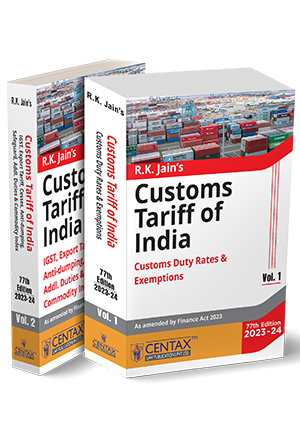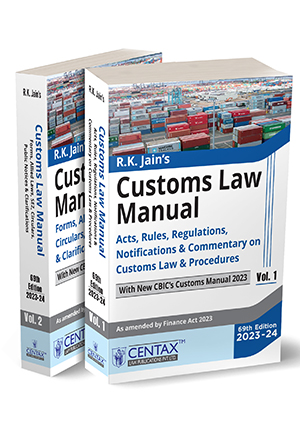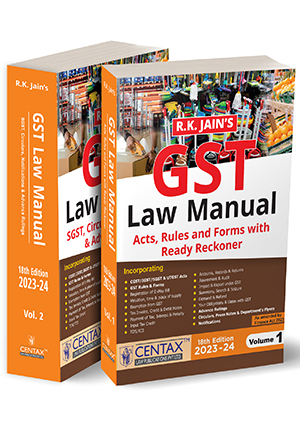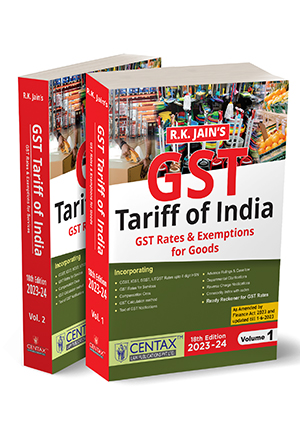ICAI’s New Scheme of Education and Training 2023 – Course Stages | Registration | Examination Criteria | Subject Details
- CA|Exam|
- 9 Min Read
- By Taxmann
- |
- Last Updated on 16 May, 2024
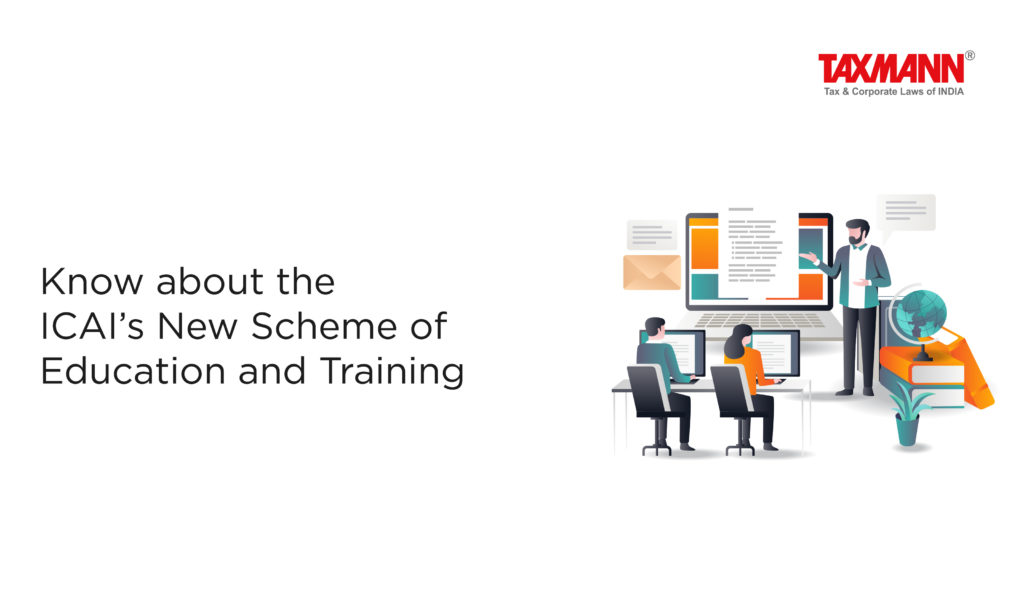
The Institute of Chartered Accountants of India (ICAI) introduced a New Scheme of Education and Training 2023 to enhance the CA curriculum and align it with global standards. Here are the key highlights of the new scheme: – Revised CA Course Structure – Enhanced Practical Training – Examination and Assessment Changes – Soft Skills and IT Training – Global Recognition and Alignment – Ethics and Professionalism – Support and Resources The new scheme aims to produce well-rounded professionals equipped with the necessary skills to meet the evolving demands of the global business environment.
Table of Contents
- Introduction
- Course Brief
- Course Stages
- Course Registration
- Registration Timeline
- Examination Eligibility Criteria
- Course Subjects
- Pattern of Examination
- Passing Criteria
- Revalidation of Registration
- Practical Training
- Implementation Schedule of the Scheme
- Transition from Old Scheme to New Scheme
1. Introduction
ICAI is dedicated to maintaining excellence and adaptability in accounting. Its New Scheme of Education and Training 2023 which was launched on 1st July, 2023 aims to provide aspiring Chartered Accountants (CAs) with the necessary knowledge and skills for the evolving business landscape. The scheme is reviewed periodically to stay aligned with global education standards and national policies.
Exploring the key features of the ICAI’s New Scheme of Education and Training and its importance in meeting the changing demands of the accounting profession is essential, some of which have been discussed here.
2. Course Brief
The ICAI’s New Scheme of Education and Training has three levels – Foundation, Intermediate and Final including the newly introduced Self-Paced Online Modules. The CA course offers two entry routes: Foundation Course and Direct Entry Route. Depending on the route chosen to enroll for CA Course, the time requirement for course completion differs and could be 3 to 4 years. The over-all expenditure for completion of entire course comes to Rs. 85,000 to 90,000, which includes all expenses such as registration fees, examination fees and training fees. Further, separate coaching center fees could range from Rs. 1 lakh to 2 lakhs additionally.
3. Course Stages
Below are some of the details of each of the stages of CA Course to be undergone by the candidate:
| CA Course Stage | Details |
| Foundation | It is the entry level for Chartered Accountancy Course, comprising of four papers, out of which two are subjective and two are objective type.
Foundation exams are conducted 3 times a year (May/June, September and January). Note: Direct Entry students are exempted from appearing in CA Foundation Examination and they can register for Intermediate Course directly. |
| Intermediate | For students entering through Foundation Route, it is the 2nd stage of CA Course and for Direct Entry students, it is the 1st stage.
Intermediate Course covers working knowledge of core and allied subjects to accountancy profession. Intermediate exams are conducted 3 times a year (May/June, September and January). The subjects of Intermediate Course are classified into two groups (3 papers in each group) which a student can study and appear in the examination group-wise or both the groups together. |
| ICITSS | Since knowledge of present day technology and skills has become necessary, students ungergo Integrated Course on Information Technology and Soft Skills (ICITSS) which includes two training programs of 15 days each at designated ICAI branches. |
| Practical Training | One of the unique and significant features of the entire CA curriculum is the compulsory two years of practical training (or Articleship) which helps the students to appreciate the underlying practical applications of the theoretical education scheme, thus inulcating a balanced approach. The student can register for the training after qualifying both the groups of Intermediate & completing ICITSS.
This practical training is instrumental in shaping a well-rounded professional to ensure that students have an opportunity to acquire on-the-job work experience of a professional nature. Note: A student can also undergo Industrial Training for a period of 9 months to 12 months, permitted during the last part of 2 years Practical Training. |
| AICITSS | To prepare the students for corporate world and develop a strong base for Information Technology and soft skills, students undergo two 15 days traning program under Advanced Integrated Course on Information Technology and Soft Skills (AICITSS) after completion of Practical training. |
| Self-paced Online Modules | Four self-paced online modules [SET A, SET B, SET C and SET D] encompassing different fields have been introduced, which a student can learn and qualify at his/her own pace after registering for Final Course. |
| Final
|
It is the last stage of CA curriculum.
Final Course covers inculcation of advanced application knowledge of core and allied subjects to accountancy profession. The subjects of Final Course are classified into two groups (3 papers in each group) which a student can study and appear in the examination group-wise or both the groups together. |
4. Course Registration
Students need to register for Foundation/Intermediate/Final level through Self Service Portal (SSP) of ICAI at the link https://eservices.icai.org.
| CA Level |
Registration Eligibility Criteria |
| Foundation | Students after passing Class 10th examination can provisionally register for the Foundation Course and can appear in the Foundation Examination after appearing in the senior secondary (10+2) examination. |
| Intermediate | There are two ways in which a student can register for CA Intermediate Course:
I. Through CA Foundation Course i.e. on clearing CA Foundation examination successfully. II. Through Direct Entry i.e. exempted from passing Foundation Course and directly registering for Intermediate Course. Such candidates can include: (a) Commerce stream graduates or post graduates with minimum 55% marks; (b) Other stream graduates or post graduates with minimum 60% marks; (c) Candidates who have passed the Intermediate level of the Institute of Companies Secretaries of India (ICSI) or the Institute of Cost Accountants of India (ICMAI). Note: Students who are pursuing the final year of Graduation Course can also register for the Intermediate Course on a provisional basis; and they must submit the proof of having passed the Graduation examination with the specified percentage of marks within six months from the date of appearance in the final year Graduation examination. |
| Final | Candidates must qualify both the groups of the Intermediate examination to register for CA Final Course. |
| Self-Paced Online Modules | At the time of registration for Final Course, students would also be registering for Self-Paced Online Modules. |
5. Registration Timeline
| CA Level | Registration Timeline | ||||||||
| Foundation | As a minimum of 4 months study period from the date of registration is required to be completed in order to be eligible to appear in the Foundation Examination, students must register for Foundation Course on or before the following dates:
The last date to register for CA Foundation September 2024 Examination was 1st May 2024. The students must register for Foundation Course on or before the following dates:
|
||||||||
| Intermediate | For students registering for Intermediate Course through Foundation Course Route or Direct Entry Route:
As a minimum of 8 months study period from the date of registration is required to be completed in order to be eligible to appear in the Intermediate Examination, students must register for Intermediate Course on or before the following dates:
|
||||||||
| Final | One can register for CA Final Course anytime after completing CA Intermediate i.e. qualifying both groups. |
6. Examination Eligibility Criteria
| CA Level | Examination Eligibility Criteria |
| Foundation | A student can appear in the Foundation Examination only if he/she has:
|
| Intermediate | For students registering for Intermediate Course through Foundation Course Route or Direct Entry Route, he/she can appear in the Intermediate Examination only if he/she has:
|
| Final | A student can appear in the Final Examination only if he/she has:
|
7. Course Subjects
The details of the Papers covered at different levels:
Foundation
- 4 Papers
Intermediate
- 6 Papers (2 Groups of 3 Papers each)
Mandatory self-paced online learning modules
- 4 Modules
Final
- 6 Papers (2 Groups of 3 Papers each)
| Sr. No. | Course Level | Papers | Marks Per Paper |
| 1. | Foundation
(4 Papers) |
Paper 1: Accounting
Paper 2: Business Laws Paper 3: Quantitative Aptitude
Paper 4: Business Economics
|
100 Marks
100 Marks 100 Marks
100 Marks Total: 400 marks |
| 2. | Intermediate
(2 Groups of 3 Papers each) |
Group 1
Paper 1: Advanced Accounting Paper 2: Corporate and Other Laws Paper 3: Taxation Section A – Income-tax Law Section B – Indirect taxes
Group 2 Paper 4: Cost and Management Accounting Paper 5: Auditing and Ethics Paper 6A: Financial Management Paper 6B: Strategic Management |
100 Marks 100 Marks
50 Marks 50 Marks Total: 300 marks
100 Marks 100 Marks 50 Marks 50 Marks Total: 300 Marks |
| 3. | Self Paced Online Learning Modules | Set A
Corporate & Economic Laws Set B Strategic Cost and Performance Management Set C – Choose Any One
Set D – Choose Any One
|
|
| 4. | Final
(2 Groups of 3 Papers each) |
Group 1
Paper 1: Financial Reporting Paper 2: Advanced Financial Management Paper 3: Advanced Auditing, Assurance and Professional Ethics Group 2 Paper 4: Direct Tax Laws and International Taxation Paper 5: Indirect Tax Laws Paper 6: Integrated Business Solutions (Multi-disciplinary case study with Strategic Management – Open-book examinaton) Note: There shall be an additional emphasis on Ethics and Information Technology and will be integrated with curriculum of all subjects at Final level. |
100 Marks 100 Marks 100 Marks Total: 300 Marks
100 Marks 100 Marks 100 Marks Total: 300 Marks |
8. Pattern of Examination
To form an appropriate study strategy, understanding the type of questions asked (whether subjective or objective-type) becomes helpful.
| CA Level | Pattern of Examination |
| Foundation | Paper 1 & 2 are subjective type and Paper 3 & 4 are objective type with a negative marking of 0.25 mark for every wrong answer in objective type papers. |
| Intermediate/Final | 30% case scenario/case-study based MCQs and 70% descriptive questions in all the six papers with no negative marking for incorrect answer to MCQs. |
9. Passing Criteria
| CA Level | Passing Criteria |
| Foundation | Minimum 40% marks in each paper and an aggregate of 50% in all papers |
| Intermediate/Final | 40% in each paper individually and 50% in aggregate to pass the group.
Exemption: If a student secures 60% or more in Paper/s in one attempt, he/she may be exempted from that Paper/s and treated as passed in that Paper/s for next 3 attempts. The exemption can be availed further (after 3 attempts) subject to scoring 50% passing marks in the remaining paper/s individually (instead of 40% marks in individual paper and 50% marks in aggregate). In case the student finds difficult to obtain 50% in each of the remaining paper/s individually, he/she may opt to surrender the exemption after three attempts. |
| Self Paced Online Learning Modules | 50% in each module. |
10. Revalidation of Registration
The registration at each level of CA Course remains valid for a finite period, after which it lapses. However, it can be validated by paying a renewal/re-validation fee as specified by ICAI from time to time.
The validity period of initial registration to CA Course at each level as well as the allowability of re-validation is stated below:
|
CA Level |
Validity of Registration |
Revalidation |
|
Foundation |
4 years |
Not allowed |
| Intermediate |
5 years |
Allowed once |
|
Final |
10 years |
Allowed |
11. Practical Training
After qualifying both groups of Intermediate and completion of ICITSS, Practical Training has to be undergone by students for 2 years with 12 leaves allowed in a year and 100% increase in the stipend presently paid to Article Assistants.
An option to undergo Industrial Training for 9 months to 1 year (in the last leg of Practical Training) is also provided.
The students can appear in Final examination after completion of 6 months from the end of Practical Training period. (Note: If the student is unable to clear the Final examination, he/she can apply for Business Accounting Associate (BAA Certificate)
Further, the classification of the normal place of service of the articled assistant based on the population of cities/towns and the corresponding stipend amount for each year of training has been presented below:
|
Population of Cities/Towns |
First Year of Training | Second Year of Training |
Third Year of Training |
|
20 lakhs and above |
Rs. 4,000 | Rs. 5,000 |
Rs. 6,000 |
| 5 lakhs and above but < 20 lakhs | Rs. 3,000 | Rs. 4,000 | Rs. 5,000 |
| Less than 5 lakhs | Rs. 2,000 | Rs. 3,000 |
Rs. 4,000 |
12. Implementation Schedule of the Scheme
The ICAI’s New Scheme of Education and Training implementation schedule is designed to smoothly transition aspiring Chartered Accountants from the old scheme to the new one.
|
Course |
Last Exam under Old Scheme |
First Exam under New Scheme |
|
Foundation |
December, 2023 |
June, 2024 |
|
Intermediate |
November, 2023 |
May, 2024 |
|
Final |
November, 2023 |
May, 2024 |
| Training | Last Date of Commencement of 3 years training | Date of Commencement of 2 years training |
| Practical Training | 30th June, 2023
(Relaxation provided till 30th September, 2023) |
1st October, 2023 |
13. Transition from Old Scheme to New Scheme
After November/December, 2023 Exams results, all the existing students were automatically converted in the ICAI’s New Scheme of Education and Training.
Thus, ICAI’s New Scheme of Education and Training 2023 is a progressive step towards nurturing future-ready chartered accountants. With its focus on skill assessment, competency development, and alignment with international standards and the National Education Policy, the scheme equips students with the necessary knowledge and skills to excel in the accounting profession.
For complete information on the ICAI’s New Scheme of Education and Training, refer https://www.icai.org/post/new-scheme-of-education-and-training
Disclaimer: The content/information published on the website is only for general information of the user and shall not be construed as legal advice. While the Taxmann has exercised reasonable efforts to ensure the veracity of information/content published, Taxmann shall be under no liability in any manner whatsoever for incorrect information, if any.

Taxmann Publications has a dedicated in-house Research & Editorial Team. This team consists of a team of Chartered Accountants, Company Secretaries, and Lawyers. This team works under the guidance and supervision of editor-in-chief Mr Rakesh Bhargava.
The Research and Editorial Team is responsible for developing reliable and accurate content for the readers. The team follows the six-sigma approach to achieve the benchmark of zero error in its publications and research platforms. The team ensures that the following publication guidelines are thoroughly followed while developing the content:
- The statutory material is obtained only from the authorized and reliable sources
- All the latest developments in the judicial and legislative fields are covered
- Prepare the analytical write-ups on current, controversial, and important issues to help the readers to understand the concept and its implications
- Every content published by Taxmann is complete, accurate and lucid
- All evidence-based statements are supported with proper reference to Section, Circular No., Notification No. or citations
- The golden rules of grammar, style and consistency are thoroughly followed
- Font and size that’s easy to read and remain consistent across all imprint and digital publications are applied



